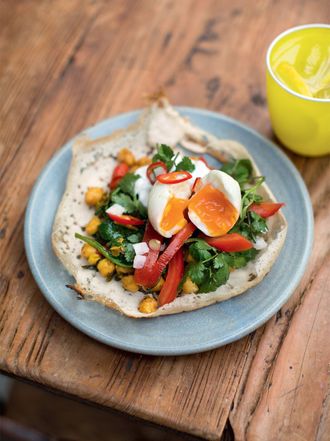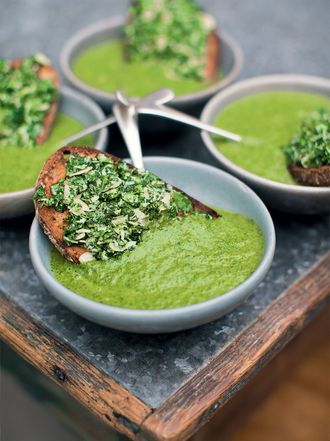Grilled salmon recipe jamie oliver
From gorgeous veg-packed stews, fresh and vibrant salads and light summer pasta, you’ll be spoilt for choice. From quick dinner ideas to easy roasts, we’ve chosen a selection of delicious one-pan recipes that can all be made with minimal effort. Born to an upper-class family, David rebelled against grilled salmon recipe jamie oliver norms of the day.
In the 1930s she studied art in Paris, became an actress, and ran off with a married man with whom she sailed in a small boat to Italy, where their boat was confiscated. They reached Greece, where they were nearly trapped by the German invasion in 1941, but escaped to Egypt, where they parted. In 1946 David returned to England, where food rationing imposed during the Second World War remained in force. Dismayed by the contrast between the bad food served in Britain and the simple, excellent food to which she had become accustomed in France, Greece and Egypt, she began to write magazine articles about Mediterranean cooking. David’s reputation rests on her articles and her books, which have been continually reprinted. David was born Elizabeth Gwynne, the second of four children, all daughters, of Rupert Sackville Gwynne and his wife, the Hon Stella Gwynne, daughter of the 1st Viscount Ridley.
Both parents’ families had considerable fortunes, the Gwynnes from engineering and land speculation and the Ridleys from coal mining. The widowed Stella Gwynne was a dutiful mother, but her relations with her daughters were distant rather than affectionate. Elizabeth and her sisters, Priscilla, Diana and Felicité were sent away to boarding schools. As a teenager David enjoyed painting, and her mother thought her talent worth developing. In 1930 she was sent to Paris, where she studied painting privately and enrolled at the Sorbonne for a course in French civilisation which covered history, literature and architecture. After returning to England in 1932 David unenthusiastically went through the social rituals for upper-class young women of presentation at court as a débutante and the associated balls.

The respectable young Englishmen she met at the latter did not appeal to her. From Oxford, David moved to the Open Air Theatre in Regent’s Park, London, the following year. She rented rooms in a large house near the park, spent a generous 21st birthday present on equipping the kitchen, and learned to cook. At Regent’s Park David made little professional progress. The company was distinguished, headed by Nigel Playfair and Jack Hawkins, and, in the leading female roles, Anna Neagle and Margaretta Scott.
After her return to London in early 1937, David recognised that she was not going to be a success on the stage, and abandoned thoughts of a theatrical career. Later in the year she took a post as a junior assistant at the fashion house of Worth, where elegant young women from upper-class backgrounds were sought after as recruits. The outbreak of the Second World War in September 1939 halted their progress. After stopping briefly at Marseille they sailed on to Antibes, where they remained for more than six months, unable to gain permission to leave. David and Cowan finally left Antibes in May 1940, sailing to Corsica and then towards Sicily. They had reached the Strait of Messina when Italy entered the war on 10 June.

They were suspected of spying and were interned. Able to speak excellent French and good German, David secured a job in the naval cipher office in Alexandria. She was quickly rescued from temporary refugee accommodation, having met an old English friend who had an “absurdly grandiose” flat in the city and invited her to keep house for him. Suleiman performed minor miracles with two Primus stoves and an oven which was little more than a tin box perched on top of them. His soufflés were never less than successful.
Cooper comments on this period of David’s life, “Pictures of her at the time show a quintessential librarian, dressed in a dark cardigan over a white shirt with a prim little collar buttoned up to the neck: but at night, dressed in exotic spangled caftans, she was a different creature: drinking at Hedjaki’s bar, eating at the P’tit Coin de France, dancing on the roof of the Continental and then going on to Madame Badia’s nightclub or the glamorous Auberge des Pyramides. The couple were married in Cairo on 30 August 1944. Within a year, Tony David was posted to India. His wife followed him there in January 1946, but she found life as the wife of an officer of the British Raj tedious, the social life dull, and the food generally “frustrating”.
Returning after her years of Mediterranean warmth and access to a profusion of fresh ingredients, David found her native country in the post-war period grey and daunting, with food rationing still in force. Hardly knowing what I was doing I sat down and started to work out an agonized craving for the sun and a furious revolt against that terrible cheerless, heartless food by writing down descriptions of Mediterranean and Middle Eastern cooking. Even to write words like apricot, olives and butter, rice and lemons, oil and almonds, produced assuagement. Later I came to realize that in the England of 1947, those were dirty words I was putting down. 24 Halsey Street, Chelsea, David’s home from 1947 until her death. A blue memorial plaque commemorates her. When her husband returned from India in 1947, David immediately separated from Lassalle and resumed the role of wife.
With the aid of Stella Gwynne, David and her husband bought a house in Chelsea, which remained her home for the rest of her life. Veronica Nicholson, a friend with connections in the publishing trade, persuaded David to continue writing, with the aim that she write a book. David told Scott-James that she planned to publish the articles as a book, and was allowed to retain the copyright by the magazine. Cyril Ray and John Arlott commented that the drawings added to the attractions of the book. The book was well received by reviewers. Elizabeth Nicholas, writing for The Sunday Times, thought David a “gastronome of rare integrity” who “refuses to make any ignoble compromises with expediency”.